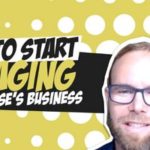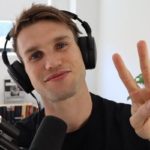James: James Schramko here chatting to Gert Mellak from SEOLeverage.com. Today, I’m going to ask Gert about SEO tasks. I want to know which tasks are the most important tasks that a business owner should be focusing on if they have a website that produces an income?
Secondly, how do we keep track of the task? Because it can get away from you. SEO is one of those things that unless you get a penalty or suddenly your traffic drops from the sky, it’s generally not tapping you on the shoulder saying, hey, you should update the website. You should tune me a little bit. It’s just one of those things that over time just starts to slip away. And we’ve experienced that too. We had a lot of amazing rankings. And occasionally, they just sort of fade, but very gently. And unless we have someone like Gert keeping a finger on the pulse, it will be easy just to wake up one day and realize, Hey, where did all that SEO traffic go?
So Gert, which SEO tasks should we focus on? And how do we make sure that we maintain our focus on it moving forward?
Gert: That’s an extremely important question. Because there’s essentially probably 200 things you could do on your website. And all those things are good for SEO. But at the end of the day, there is an 80-20 you can think of in terms of tasks on your SEO, because this is really what then moves the needle.
SEO is a long term thing, it’s a long game. But you definitely want to be able to focus on the right things to get at least mid-term results for your website. So there’s a lot of things you can do. Only a few things are really important, and instead of SEO tapping your shoulder and telling you what you need to do, this is usually our job. So this is when we have an ongoing consulting with someone, we have a framework that’s called ERICA where we essentially deal with all the things you should be doing.
And then line those up as tasks for our clients. So they know exactly what they’re going to focus on in the next couple of weeks, where we in our team have defined that those are the high-impact things we really want to focus on. So we come up with ideas all the time, the entire team. Maybe they could focus on this one, maybe they could focus on that.
Then we line up those ideas and find the ones that have the most impact based on the current situation. And this changes over time. We just went through a Google update again. There is a completely different situation right after the Google update than in between updates where things are rather stable. So there are other things you need to focus on that are high-impact after Google update – can be taking your top-ranking URLs and seeing if they are still in the right position, if there is anything that changed under page one of Google that we need to take into account. Whereas when things go rather smoothly, the focus might shift towards recycling old content, bringing old content back to today’s standards to get additional traffic or discover gaps between you and your competitors where they get traffic and you don’t.
So these are kind of the tasks we want to focus on. And to streamline this with our framework, we created an application. So we spent, like, half a year probably working on an app with our developer to really make sure that we streamline the tasks for our clients, because we found they were lost with all the things they should be doing. We had, like, a spreadsheet handling this for them a little bit. But it was a little bit of a tedious process.
Right now, they have a dashboard where they see, this is my search performance. These are the tasks I need to focus on. This is who is going to do those tasks, because some are on our list where we do some research or research the competitors, see what’s working for them. They know exactly for their team who was working on those tasks. And they can automatically answer or ask questions on those tasks, if they need additional help where me and my team then go in and provide these additional resources or send them a quick Loom video to explain something that wasn’t clear enough, etc. Or to schedule in a call with me, and we quickly clarify something so they can keep moving.
What’s really important, and I very often compare this with fitness, you need to have consistency in SEO. If there is any secret in SEO – and this is a secret everybody’s screaming essentially anyway – it’s really consistent execution. I can’t get results if I don’t go to the gym at least a couple of times a week, right? It used to be a couple of times a year. So now, I’m a little bit more consistent. But there’s just no way to get results if you don’t do SEO consistently. The clients that get the most results are the ones that work like clockwork, really. The team is exactly focusing on the tasks in two-week period.
So every two weeks, they check out their tasks. We send them a video update on how they can shift things around. If something drops, we send them an update on what is the strategy, what are the strategic high-impact steps they should be focusing on. They get this on the application to log in, see what they need to do. They can mark things as done, they can ask questions, and are always on track and always know what to do next that’s going to have the highest impact. Very comparable, by the way, to your style of coaching here.
James: Right, and who can use this tool?
Gert: Everybody who is on an ongoing consulting agreement right now with us, which we call ERICA consulting, has access to this tool. So they get access to this dashboard, where we, from a lot of paid tools we have as an SEO agency, we drag their information into this platform.
So for clients, really, there’s probably hardly any tool they really should be getting apart from when they are on ongoing consulting with me. So they can save a few hundred dollars of external tools, because we drag the most important information from there in any way for competitive research and things like those. So they always also see where they are compared to their competitors, and get an idea how things are moving – which competitors are dropping, which competitors are going up. And I think this is really important in order to keep the momentum going, and also know what should be the focus at any given moment in time.
James: Right. So this is over at SEOLeverage.com. I’m wondering, does everyone have different tasks, or are they very similar? Do you see patterns?
Gert: Sometimes they are similar and we also send out an insider’s email where I say, Okay, this is what we are seeing across different industries that seems to be working independent of the industry. But then tasks are extremely personalized, because everybody’s in a different situation. We just onboarded a client who doesn’t have a proper conversion tracking, this is something we really need to focus on first, because we want to know, ultimately, most sites don’t want only traffic. They want conversions, leads, sales, opt-ins, whatever. Whereas other clients have already their conversion tracking setup. And it’s really more a matter of getting from position five to position four to position one.
And the focus is completely different. The focus might lie on some clients more on links, backlinks, backlink profiles, link graphs, etc. And on other clients, we really need to make sure Google understands what the article is about, because sometimes with artificial intelligence, NLP engines, etc., this can also be tricky.
James: Great! Thank you for that comprehensive overview around tasks and how to manage them. If you’re lucky enough to be an SEOLeverage.com client like we are, then you’ll be able to access that amazing application which is brand new, and makes it much easier for you and your team to interact with Gert and their team to get ongoing support and results with SEO.
Thanks so much for sharing, Gert
Gert: Thank you, James.
See our products here
Need help with your search engine optimization? Look up Gert at SEOLeverage









Leave a Reply